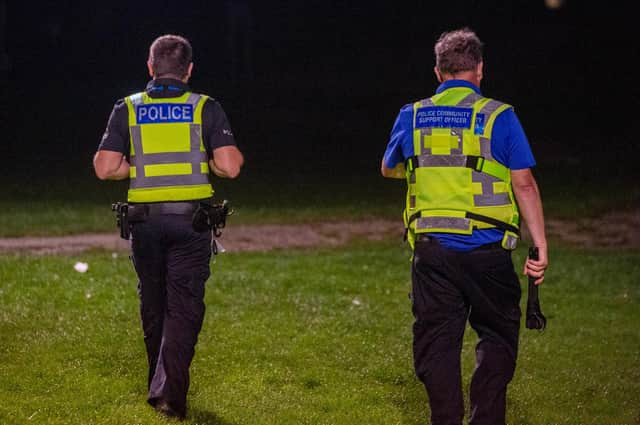Boston, Sleaford, Skegness, Louth, and Mablethorpe among areas of “greatest vulnerability and need” that will be targeted by dedicated PCSOs


Following the announcement in January that the force’s PCSO establishment is to be reduced from 91 to 50, Lincolnshire Police have revealed the updated plans which will see each area of Lincolnshire continuing to be covered by its own dedicated Neighbourhood Policing Team.
These teams, led by an Inspector, will have dedicated Police Sergeants and Constables, with an additional 13 Community Beat managers.
Advertisement
Hide AdAdvertisement
Hide AdThe force has identified 19 areas of greatest vulnerability and need – identified by looking at police crime and incident data and deprivation data – in which a dedicated PCSO team will lead on preventing and problem-solving local community issues, supported by officers from Response, the dedicated Roads Policing Unit, Rural Crime Action Team and investigation teams.
These 19 areas include Boston Rural West, Town East, and Town Centre, Skegness, Sleaford Town, Mablethorpe, and Louth Town, with further areas including areas of Gainsborough, Lincoln, Grantham, and Spalding.
Two PCSOs will each be allocated to the most vulnerable beats, with an additional 12 PCSOs based between Gainsborough, Skegness, Boston, and Grantham.
Neighbourhood Policing teams will be made up of officers including PCSOs, Community Beat Managers, Sergeants, and Inspectors.
Advertisement
Hide AdAdvertisement
Hide AdBoston South Holland will have 31 officers (including 15 PCSOs); the East Lindsey Wolds will have 23 officers (with nine PCSOs); Lincoln West Lindsey will have 47 officers, which includes 17 PCSOs, and North and South Kesteven will have 27 officers (with nine PCSOs).
Chief Constable Chris Haward said: “The bedrock and foundation of policing is built from our communities upwards, and this new model means that we have our officers in the areas where they are most needed.“We have not removed teams from any area but have instead rebalanced in order to deliver a policing model that keeps people safe and protects them from harm. It is also worth remembering that our local teams are not the only officers who are out there in our communities across the county because they work in tandem with other Lincolnshire Police officers and staff from different departments.
"While on paper their tasking might be different, their goals are universal - to keep people in this county safe.“Of course, these decisions have been difficult, but we’ve made sure that we not only fully understand where our staff need to be, but also that we use our remaining resources wisely by setting their focus to make sure they deliver policing in Lincolnshire that looks after our communities.
"This stretches right through the organisation and our investments in areas such as the Force Control Room, which is the beating heart of Lincolnshire Police, and our safeguarding teams mean we are allocating resources to where they are most essential.“The new local policing model will of course be different but we are confident that these plans will look after people who are living in areas of the most vulnerability, threat, and harm.”